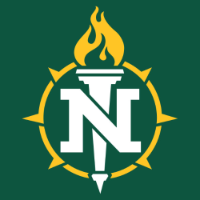What do they do?
Perform work involving the skills of two or more maintenance or craft occupations to keep machines, mechanical equipment, or the structure of a building in repair. Duties may involve pipe fitting; HVAC maintenance; insulating; welding; machining; carpentry; repairing electrical or mechanical equipment; installing, aligning, and balancing new equipment; and repairing buildings, floors, or stairs.
Also known as:
Building Engineer, Building Maintenance Mechanic, Building Mechanic, Building Services Mechanic, Equipment Engineering Technician, Facilities Technician, General Maintenance Mechanic, General Maintenance Technician, I and C Technician (Instrument and Controls Technician), Industrial Maintenance Technician, Maintenance Associate, Maintenance Engineer, Maintenance Journeyman, Maintenance Man, Maintenance Mechanic, Maintenance Person, Maintenance Specialist, Maintenance Technician, Maintenance Worker, Plant Maintenance Technician
-
5.4%
Change
Ranks #53 in job growth rate6,000Job Openings
Ranks #9 in net job growth
-
Motoring Technical Training Institute
Seekonk, MA
-
Vista Adult School
Vista, CA
-
Employment Solutions-College for Technical Education
Lexington, KY
-
Flint Hills Technical College
Emporia, KS
-
CET-Alexandria
Alexandria, VA
Looking for colleges that offer a specific major? Use the College Match Tool to find your best-matched schools and discover your estimated Net Price!
- Doctorate or Professional Degree (<1%)
- Master's degree (1%)
- Bachelor's degree (7%)
- Associate's degree (11%)
- Some college, no degree (24%)
- High school diploma equivalent (43%)
- Less than high school diploma (12%)
People in this career often have these skills:
- Equipment Maintenance - Performing routine maintenance on equipment and determining when and what kind of maintenance is needed.
- Repairing - Repairing machines or systems using the needed tools.
- Troubleshooting - Determining causes of operating errors and deciding what to do about it.
People in this career often know a lot about:
- Mechanical - Knowledge of machines and tools, including their designs, uses, repair, and maintenance.
- English Language - Knowledge of the structure and content of the English language including the meaning and spelling of words, rules of composition, and grammar.
- Building and Construction - Knowledge of materials, methods, and the tools involved in the construction or repair of houses, buildings, or other structures such as highways and roads.
- Mathematics - Knowledge of arithmetic, algebra, geometry, calculus, statistics, and their applications.
People in this career often have talent in:
- Information Ordering - The ability to arrange things or actions in a certain order or pattern according to a specific rule or set of rules (e.g., patterns of numbers, letters, words, pictures, mathematical operations).
- Arm-Hand Steadiness - The ability to keep your hand and arm steady while moving your arm or while holding your arm and hand in one position.
- Manual Dexterity - The ability to quickly move your hand, your hand together with your arm, or your two hands to grasp, manipulate, or assemble objects.
- Near Vision - The ability to see details at close range (within a few feet of the observer).
- Problem Sensitivity - The ability to tell when something is wrong or is likely to go wrong. It does not involve solving the problem, only recognizing that there is a problem.
- Oral Expression - The ability to communicate information and ideas in speaking so others will understand.
- Visualization - The ability to imagine how something will look after it is moved around or when its parts are moved or rearranged.
- Control Precision - The ability to quickly and repeatedly adjust the controls of a machine or a vehicle to exact positions.
People in this career often do these activities:
- Inspect mechanical components of vehicles to identify problems.
- Replace worn, damaged, or defective mechanical parts.
- Inspect mechanical equipment to locate damage, defects, or wear.
- Test mechanical equipment to ensure proper functioning.
- Adjust equipment to ensure optimal performance.
- Order materials, supplies, or equipment.
- Install machine or equipment replacement parts.
- Maintain work equipment or machinery.
- Read technical information needed to perform maintenance or repairs.
- Troubleshoot equipment or systems operation problems.
- Develop equipment or component configurations.
- Test fluids to identify contamination or other problems.
- Assemble electrical components, subsystems, or systems.
- Install electrical components, equipment, or systems.
- Repair electrical circuits or wiring.
- Clean equipment, parts, or tools to repair or maintain them in good working order.
- Lubricate equipment to allow proper functioning.
- Remove snow.
- Perform manual agricultural, aquacultural, or horticultural tasks.
- Estimate costs for labor or materials.
- Align equipment or machinery.
- Record information about parts, materials or repair procedures.
- Operate welding equipment.
- Disassemble equipment for maintenance or repair.
- Operate cranes, hoists, or other moving or lifting equipment.
- Measure distances or dimensions.
- Plan work procedures.
- Lay out work according to specifications.
- Install energy-efficient heating, ventilation, or air conditioning (HVAC) equipment.
- Assemble mechanical components or machine parts.
- Fabricate parts or components.
- Clean work areas.
- Train others in operational procedures.
- Supervise employees.
- Repair structural components.
- Assemble structural components.
- Paint surfaces or equipment.
- Install insulation in equipment or structures.
- Grind parts to required dimensions.
This page includes data from:

 Occupation statistics: USDOL U.S. Bureau of Labor Statistics Occupational Employment Statistics
Occupation statistics: USDOL U.S. Bureau of Labor Statistics Occupational Employment Statistics






